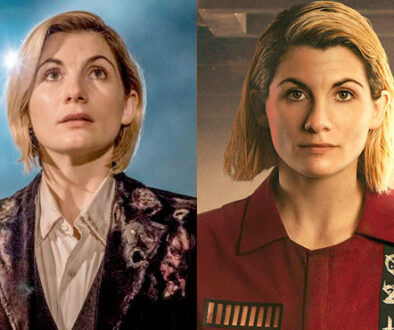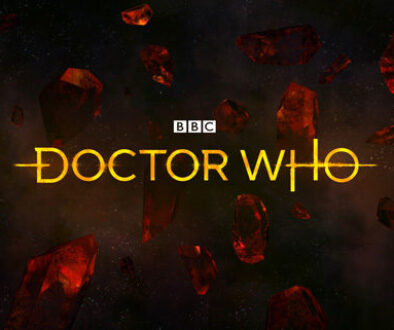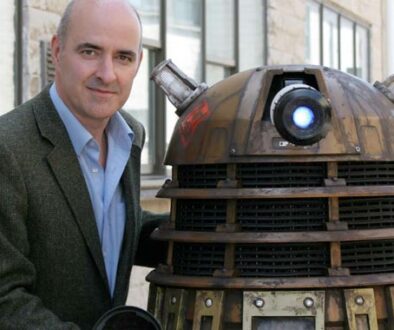2nd Opinion: Spyfall, Part Two
JC & Gustaff give their takes on the second episode of Series 12.
JC’s Verdict – A solid enough conclusion

This post contains full spoilers for episode 2 of Series 12.
Part 2 of Spyfall has to cram in an awful lot. Not only attempting to wrap up a myriad of dangling threads from the first half, but also several radically different time periods, new guest stars, three foes, and continuity galore (what a difference a year makes)! It’s an episode that easily could’ve burst under such weight. While it doesn’t always work, and the conclusion feels somewhat hasty, it is a solid enough instalment.
First off, the resolution to cliffhanger was pretty well done, though I can’t give it points for originality – thank you, “Blink”! Also, using an app to control a plane might be pushing things too far, even for Who. What I liked most (aside from Graham laser ‘dancing’, obviously) was that the companions were forced to fend for themselves for almost the whole episode, even if their situation felt familiar again – hello, “The Sound of Drums”. I also was pleased that they finally started to question what they really knew about the Doctor. Last year they were acting like the very closest of friends, or “fam” (Please drop that, Chibnall), despite knowing very little about each other.
Speaking of companions, the episode introduces another two wannabes in the form of historical figures Ada Lovelace (Sylvie Briggs) and Noor Inayat Khan (Aurora Marion). Prior to the episode, I’ll admit I knew next-to-nothing of their real-life origins, so I can’t comment on accuracy. But I felt they were handled decently, even if a few scenes were too on the nose. I also think perhaps focusing on just one or the other would have allowed more time to breathe.
The phase-shifting monsters, revealed to be the Kasaavin, took more of a back seat this time around, disappointingly. Lenny Henry’s Barton too suffered a similar fate, but I don’t think we’ve seen the last of them. I found Barton’s final speech both chilling and amusing. The former because it was an all-too-real commentary on how much we’ve given up our privacy in the social media age, and the latter because everyone in the audience just sits there completely unfazed as he reveals his evil plans.
Last week, I remarked I was somewhat mixed about the new Master, concerned that Sacha Dhawan’s portrayal may be less complex and rather more one-dimensional compared to Missy. But I’m happy to say I was more than sold here. I’d even go as far as to say that Dhawan completely stole the episode. Every time he was on screen, I was at my most captivated.
The Master’s return also brought out the best in Jodie Whittaker. This was easily her most layered performance as the Doctor. It was nice to finally see her Doctor pushed into some really uncomfortable places and giving Whittaker something more meaty to play off. So many of Series 11 stories had little more than a “happy-go-lucky” Doctor, making for a bland lead. It’s long overdue, but hopefully she’ll continue to develop, even in more “regular” episodes.
I, like most fans of course, loved seeing Gallifrey again, and it was even more horrifying seeing what had become of it. One thing that slightly bothered me though was it appeared the Doctor just flew away. Even if she assumed everyone was dead, a scene showing the Doctor at least looking for survivors would have felt more in character.
This brings me to some of the Thirteenth Doctor’s actions. Last series she exhibited some questionable morals. This time, and despite past warnings, she erases two people’s minds after she’s finished with them. One of which will be historically sentenced to death in a concentration camp. She also allows the Master to potentially face a similar fate by revealing his current true appearance to the Nazis. It’s certainly an interesting position for a hero to take. Is this a darker Doctor than we realise?
A side note: am I the only one disappointed to be going back to the “monster-of-the-week” format? I think it would be nice in the Netflix age if Doctor Who followed suit and told one story over a series, instead of always reverting to this familiar routine. This episode shows it’s possible to move to other locations while still being a part of the same story. Why not give that a try over a longer basis?
Gustaff’s View – Mostly Disappointing

Everything from my last review…ignore it!
After setting a bar high in Part One by borrowing a couple of story ideas from the David Tennant era (“Army of Ghosts”, “The Sontaran Strategem”, “Rise of the Cybermen”), Chris Chibnall shows us that he doesn’t need to rely on David Tennant nostalgia to impress fans with his writing…by relying on David Tennant nostalgia to impress fans with his writing.
Examples:
- Yaz, Graham and Ryan being hunted down, going incognito, calling relatives who are being coerced into monitoring the phone call by authorities, reminiscing about the Doctor whilst hiding, the Doctor and Master having a very private conversation about their home world and shared past, as well as the Master asking the Doctor to use his name are all from “The Sound of Drums”.
- The companion finally confronting the Doctor about her past and the latter opening up is straight from “Gridlock”.
- The Doctor wiping Noor and Ada’s memories of everything they witnessed since meeting her is copy/pasted from “Journey’s End”, with very similar dialogue as well.
- The Doctor’s rescue of Ryan, Graham and Yaz rips off “Blink”, as does the Doctor being sent back in time against her will and using a TARDIS to return to the present.
Then, obviously from Smith’s era instead, the Doctor using a recording to sabotage the villain’s scheme using their exact words (“Day of the Moon”).
You can tell these scenes are highlight moments because Chris Chibnall didn’t write them. They are just taken from much better episodes. There is a difference between paying homage, or referencing past events, and blatantly ripping them off. And if you are going to do the latter at least try to best what’s come before.
While we’re on the subject of the companions, can we just thank Yaz, Graham and Ryan for wasting almost twenty minutes of screen time? No, really. They take up so much time and accomplish so little that a lazier, but smarter approach would’ve been to just leave them on the crashing plane out of the episode’s focus until the end and have their rescue hand waved. Go back and check, and see they add nothing to this episode except extend its runtime. This does not even cover the ridiculousness of their actual escape from the aeroplane.
Dhawan is given a lot more opportunity to showcase his portrayal of the Master which seems to be a post-Missy incarnation that is unsettlingly mad and harbours an intense hatred for everything and everyone around him. This feels a little off-key until the end of the episode when his anger is finally explained. The portrayal is good, but not perfect. Chibnall writes the Master as someone who goes into situations properly prepared, but also as someone two seconds away from twirling his villain moustache when he exposits unnecessary information that only really helps the viewer understand what’s going on.
Dhawan’s Master is also written as something of an idiot, leaving his TARDIS’ working chameleon circuit undisguised, giving incriminating oral evidence despite not needing to, not taking one extra second to push the Doctor (now in a physically weaker body) over the guardrail and killing her as he seems genuinely invested in doing in this incarnation, as well as spending 77 years catching up to the present, but not even trying to course-correct his plans gone wrong to win back control as most of his former incarnations did. Specifically those from his second regeneration cycle namely the MacQueen, Jacobi and Gomez Masters. Not only that but the Master prefers to live out 77 years when there are multiple versions of himself with a TARDIS across the planet he can summon for assistance. Big Finish media even explains that this is normal for the Master when he gets stuck.
Overall, I found this episode mostly disappointing, but there are some good bits. Hinting at Gallifrey’s destruction and then revealing the Master caused it himself is fantastic. Spyfall also successfully sets up the Timeless Child arc, though I am cautious given that it looks like Chibnall will try to alter Time Lord mythology. Given what kind of material he puts out, this may end up damaging the mythos.








